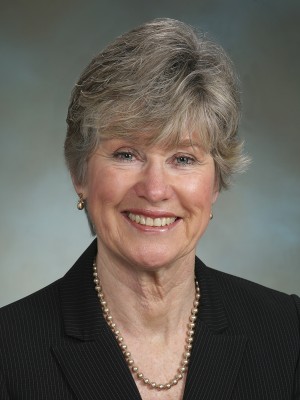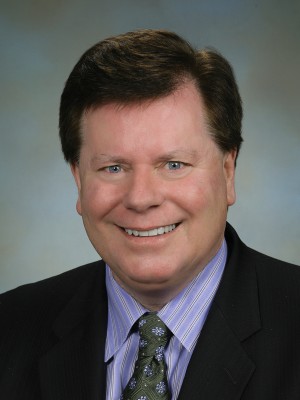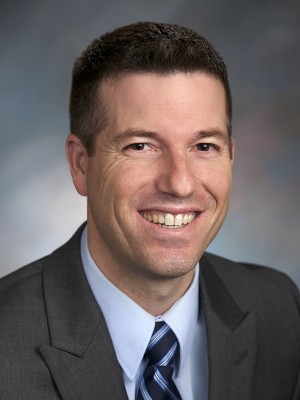State legislators hear of sub shortage, teacher pay concerns at town hall
December 14, 2014
Substitute shortages, teacher compensation, evaluation and standardized test scores, and unfunded mandates and reform fatigues were all on the agenda during the Dec. 11 town hall meeting of representatives from school districts all around the 12th Legislative District and area legislators.

Legislators attending the meeting were state Sen. Linda Evans Parlette, Rep. Brad Hawkins, and via phone from Washington, D.C., for the first half-hour, Rep. Cary Condotta. All legislators voiced in their opening statements that they were confident about being able to communicate the concerns of the attending school districts to a higher level.

“I’m optimistic that we can get to the table and do some good,” Condotta said.
Lisa Turner, executive director of human resources for the Wenatchee School District, started off the meeting by talking about the substitute teacher shortage that school districts are facing. According to Turner, the Highly Qualified Substitute certification, required of any substitute who will be working more than 20 days in one position, has limited the number of qualified substitutes in the district.
“We need an elementary educator who is bilingual and highly qualified (to cover a position at a local elementary school),” Turner said. “And that’s really hard to find.”
Turner added that general education teachers who are potential substitutes cannot become “highly qualified” without tests. She also expressed her concern that teachers who retire early can’t come back to substitute because of current laws. Because the substitute pool is so limited, Turner says it will be hard to find additional, qualified substitutes to help fill in the holes left by the hiring of current substitutes to full-time positions created by Initiative 1351.
According to Eastmont Executive Director of Human Resources Vicki Trainor, part of the reason there are no substitutes is the lack of decent pay for teachers. Trainor claims that lower salaries are driving away potential teachers; that even though minimum wage has gone up, teachers’ salaries have stayed the same and have not been adjusted for inflation.
Rachel Simmons, a French teacher at Wenatchee High School, is in her third year of teaching. Making approximately $40,000 per year, Simmons and her husband are struggling to make ends meet. Simmons spends around 22-percent of her monthly salary on student debt alone. She and her husband would like to buy a house and raise a family, but with their current income she said that to make this dream happen she would need to leave teaching.
We frequently see that the lowest test scores are from communities with a lower economic status.
— Chris Cloke, WHS English department chair
“I want to continue teaching,” she said. “But I can’t pay my students loans off with my current salary. It would cost less (with my amount of education) to be a CNA (Certified Nursing Assistant), and I would make more than I do (as a teacher).”
Recently, teacher evaluations have controversially become tied to student scores on standardized testing. Chris Cloke, head of the WHS English department, is concerned about this current method of evaluation. He expressed his unease over the fact that what is happening outside of the classroom often has a greater impact on test scores than what is happening inside of the classroom.
“We frequently see that the lowest test scores are from communities with a lower economic status,” Cloke said. “Schools often reflect the community with which they reside.”
Hawkins also expressed some concerns with tying the teacher evaluations to student standardized test scores.
“I don’t really like the idea that teachers proctor tests,” Hawkins said. “Given that their student’s scores are now attached to (the teacher’s) evaluation.”

One theme that kept popping up throughout the meeting was the lack of funds needed to support school technology. According to Erin Coyle, a middle school science teacher in the Wenatchee School District, the state asks her to teach “STEM,” and acronym for “Science, Technology, Engineering, and Math.” Coyle said she cannot teach the “T” part of “STEM” due to a lack of technology during part of the year, when computers are used for standardized testing.
Coyle said that her students spend 15 class periods, or 11 hours, 20 minutes, in standardized SBAC (Smarter Balance Assessment Consortium) testing, making up a large portion of the school year. When her classes aren’t testing, other classes are using the computer labs for that reason, and Coyle says that for around 12-percent of the school year, her students cannot access the internet for research. In addition, due to the lack of technology, Coyle says that there is a two-month difference between when different classes take the same test.
“Teachers who test later have two extra months (to teach their students),” Coyle said. “There is clearly a massive calendar problem.”
About 75 teachers, classified staff, and administrators from around the 12th Legislative District were in attendance at the meeting.
The true undercurrent of the meeting was about funding, as schools have been repeatedly cut throughout the years from the spending budget. Both Parlette and Hawkins expressed their agreement that education should be a top funding priority.
“I think we need to fund education first,” Parlette said. “And then, if there isn’t enough revenue, we need to go out for funding.”

Darryl • Dec 20, 2014 at 9:48 pm
I am a recent retiree that would enjoy teaching in my school. I don’t understand the three year teaching restriction especially with the guest teacher shortage.
Darryl • Dec 20, 2014 at 9:44 pm
I have recently retired and I miss the opportunity to guest teach at my school. I don’t understand the three year teaching restriction placed upon recent retirees.